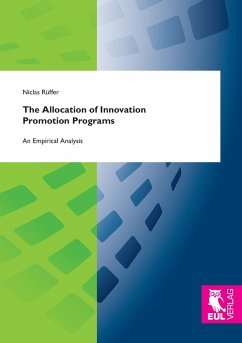R&D and innovation policy is high on the political agenda in advanced economies. Market and system failures have been identified as reasons for private underinvestment in R&D and innovation and several policy instruments are in use to mitigate these failures. One central instrument of innovation policy are direct subsidies for firm R&D. By using direct project funding governments have the chance to target projects with high social returns and therefore, in theory, i. e. if policy makers can identify projects with high social returns, direct project funding can be an effective instrument to foster private sector R&D. However, there is no straightforward mechanism guaranteeing that subsidies are applied to projects which suffer from market or system failures. The allocation process of subsidies therefore appears to be central to the question of the effectiveness of subsidies. In spite of increasing scientific interest in innovation promotion policy, analysing allocation processes has been widely neglected in the mainstream literature. However, given the potential distortions which allocation processes can have it is worth addressing this issue in depth. This dissertation analyzes the allocation of R&D subsidies to firms theoretically and empirically using a unique data set from a special subsidy program from south-western Germany. Thereby this dissertation contributes to the growing literature on innovation promotion and is of interest for innovation researchers and innovation policy makers alike.
Hinweis: Dieser Artikel kann nur an eine deutsche Lieferadresse ausgeliefert werden.
Hinweis: Dieser Artikel kann nur an eine deutsche Lieferadresse ausgeliefert werden.








